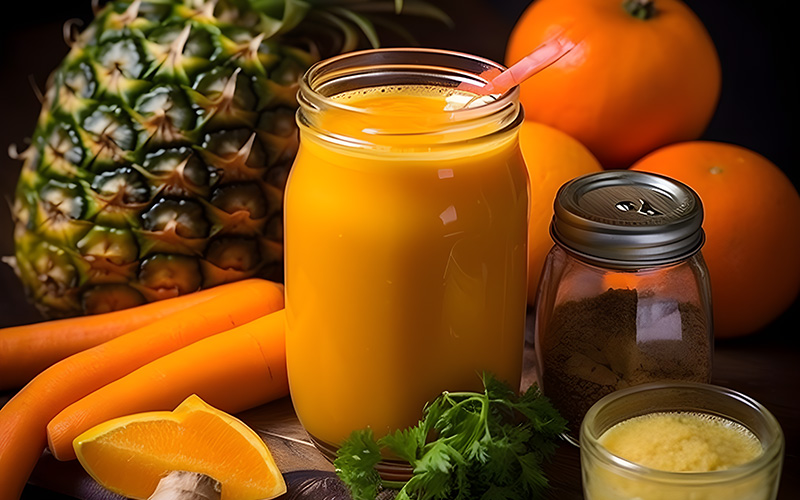5 nutrition myths a dietitian says you should stop believing – and what to do instead
With billions of views on TikTok under hashtags like #healthtips and #wellnesstrends, it’s no surprise that many feel overwhelmed by conflicting nutrition advice.

With billions of views on TikTok under hashtags like #healthtips and #wellnesstrends, it’s no surprise that many feel overwhelmed by conflicting nutrition advice.
Recent studies, along with guidance from leading nutritionists, reveal that many popular wellness beliefs are myths. From breakfast routines to fruit consumption and step goals, some commonly accepted guidance simply doesn’t hold up scientifically. Misconceptions like these can lead to unnecessary stress, missed opportunities for better health, or even counterproductive behaviours.
“With so much conflicting advice online, it’s easy to feel overwhelmed about what’s actually healthy,” says Dr Carrie Ruxton, award-winning dietitian. “Many strict ‘rules’ you see on social media about diet aren’t supported by evidence. Instead of chasing trends, focus on simple practical habits that can make a real difference.”
Five nutrition myths – debunked:
1. Skipping breakfast helps with weight loss
Contrary to popular belief, skipping breakfast does not necessarily lead to weight loss. In fact, research suggests that skipping breakfast can actually disrupt blood sugar control and increase cravings later in the day. Regular, balanced breakfasts, which include a mix of whole grains, protein, healthy fats, and fruits or vegetables, will help to stabilise blood sugar levels and keep you feeling energised throughout the day.
Tip from Dr Ruxton: Even a simple breakfast can be powerful. Focus on balance and a daily routine rather than restriction to start your day right.
2. Detoxes and juice cleanses “reset” your gut
Detoxes and cleanses are a popular trend online, but the body already has a natural detoxification system. “Detox” practices might make you feel virtuous by creating a placebo effect, but they don’t remove extra toxins from the body. In fact, in some cases, they can do the opposite by starving our gut barrier of essential nutrients. As detox products are not scientifically proven, supporting your body through balanced nutrition, hydration, and limiting alcohol are far more effective.
Tip from Dr Ruxton: Focus on natural antioxidants found in foods and healthy hydration instead of fad cleanses.
3. All ultra-processed foods are bad for you
Ultra-processed foods often get a bad reputation, but the category includes a range of foods – from healthy plant milks, vegetable sauces and high fibre cereals to unhealthy sugary sodas, snacks and confectionery. Many foods badged as UPF are not harmful when eaten as part of a balanced diet and are affordable, convenient and nutritious. Studies suggest that the health risks linked to ultra-processed foods are more about overall dietary patterns and calories than the processing itself.[1]
Tip from Dr Ruxton: Read labels and choose products higher in fibre and vitamins and lower in sugar, salt and saturated fat. It’s better to focus on nutrients, portion sizes and variety and forget UPF.
4. Orange juice spikes blood sugar
100 % orange juice does not cause harmful blood sugar spikes. Research in Nutrition & Diabetes found that people with type 2 diabetes could safely drink a glass of orange juice with no adverse effects on blood sugar or insulin levels, showing no significant difference compared to eating whole oranges. [2] Other studies in healthy adults also show no negative impact on blood sugar control after weeks of daily consumption.[3]
Tip from Dr Ruxton: With nearly half of UK adults falling short on daily vitamin targets, a glass of 100% orange will help intake of Vitamin C, Folate and Potassium.
5. ‘Low fat’ and ‘fat free’ are the healthier option
Just because something says “low fat” or “0 % fat”, doesn’t mean it’s better for you. To make up for lost flavour, many low-fat or fat-free foods add extra sugar or fillers — which are no better for your health. Your body needs healthy fats from nuts, seeds, oily fish, avocados, and olive oil which protect the heart, provide antioxidants and support brain function. So, low fat doesn’t always mean healthy — what matters is the type of fat you eat.
Tip from Dr Ruxton: Choose natural sources of healthy fats over “low-fat” or “fat-free” marketing claims.
How to avoid misinformation
Dr Carrie Ruxton’s top tips for navigating online health advice:
- Check the source: Follow registered dietitians and nutritionists, not influencers without credentials.
- Keep it simple: Focus on small, manageable changes.
- Don’t demonise foods: All foods can fit in a varied healthy diet.
- Be wary of quick fixes: If it sounds too good to be true, it probably is.
- Stay consistent: Long-term habits matter more than viral trends.
1Monteiro, C. A., et al. (2019). Ultra-processed foods: what they are and how to identify them. Public Health Nutrition, 22(5), 936–941; Srour, B., et al. (2019). Ultra-processed food consumption and risk of type 2 diabetes: prospective cohort study. BMJ, 365, l1451.
2Verboven K et al. (2025). Acute glycaemic response of orange juice consumption with breakfast in individuals with type 2 diabetes: a randomized cross-over trial. Nutrition & Diabetes. https://doi.org/10.1038/s41387-025-00385-8
3Murphy MM et al. (2017). 100 % Fruit juice and measures of glucose control and insulin sensitivity: A systematic review and meta-analysis of randomized controlled trials. J Nutr Sci 6: e59.








